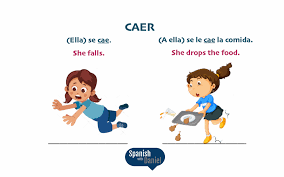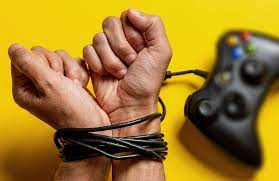My first abortive foray into learning Spanish was in elementary school. “He’s falling! He’s falling! Ai! He fell!” (Se cae! Se cae! Ai! Se cayo!) is all I remember from many years of instruction.
Never one to give up easily, I am picking up the trail something over half a century later. I am determined to learn Spanish, my despair of ever finding out what happened to the falling person from so long ago notwithstanding. Is he okay? Was he pushed? Was he badly hurt? Presumably he has long since gotten up, dusted himself off, and gone on about his business. If, on the other hand, he is still lying on the ground, it’s too sad (triste) to think about.
Why my desperation to learn another language at this late date? The software is better for one thing. That is to say, apps for learning language now exist–and not a moment too soon to replace the exasperated, anguished teachers of my youth. My brutal accent alone would have been enough to encourage well-meaning educators to consider other employment. My attitude about learning language—I want to be elsewhere and I’m going to see to it that you want to be elsewhere as well—was conveyed to my long-suffering instructors.
But I am now dedicated. And have the following complaints: Why not “Yo podo”? Doesn’t “yo podo” make sense to you as first person singular of the verb, “poder”? “Yo puedo” seems unwieldy and, if I may speak frankly, unnecessary. Why all the extra letters? I’m making a good faith effort to learn, don’t you think the language should meet me half way? Conozcer also strikes me as an irrational, never mind irregular, verb. “Yo conozco”? “I have met” or “I am familiar with.” Okay, if you must. But “conozco a” just adds insult to injury. The software turns my screen an angry red every time I leave out the “a” after conozco—which is to say every time. I get so excited about remembering that “conozcer” is unbalanced (irregular, whatever) that I forget the “a.” I feel like I am playing “Simon Says” and performing poorly. (Simon says put an “a” after “conozco.” You forgot? Se cayo! You’re out!)
For years my inability to remember verb tenses has allowed me to gesticulate wildly in a good-hearted attempt to make myself understood. If I couldn’t remember “nosotros vamanos” (“we go”) I would shout “Yo voy” (I go) and move my arms to include an imaginary “we.” For “Yo fui,” (I went) I would again say, “Yo voy” frantically pointing my right arm over my left shoulder in the universally accepted symbol for past tense. Similarly, “Yo voy ir” (“I’m going to go”) became “Yo voy” gesturing away from my body—hopefully channeling the putative movements for a future tense involving down the road.
Sometimes I think I would be better off just sticking to nouns, a better behaved and more accessible part of speech. “Aqui hora. Manana, Barcelona” should be close enough to “I want to go to Barcelona.” Because “quiero ir a” has that nasty “a” that makes me sit down in Simon Says and turns the screen red. After all those years of disappointing teachers I have apparently moved on to offending software.
Which brings me to your thoughtful questions about math instruction for your beloved children.
I get it. You think your kids could do better in math. If they only tried harder.
And you could be right. Certainly, playing violent video games until all hours isn’t getting the math homework done or any math into their developing brains.
But I wonder if there isn’t a “chicken egg” thing here. You say your child isn’t doing well in math because he’s playing video games. I’m wondering if he’s playing video games because he isn’t doing well in math, because he doesn’t like math, because he’s not good at math, because math doesn’t come naturally to him.
Could we just think about the direction of the causal arrow for a minute? It certainly seems like if he would put down the @#$%^&*! PlayStation for 20 minutes and do his @#$%^&*! math homework that you wouldn’t be getting @#$%^&*! calls from the @#$%^&*! math teacher and he wouldn’t have @#$%^&*! grades on his report card. But if the math lessons were a little more pleasant or the math lessons were at the right level or the math teacher were a bit more understanding or the dynamic between parent and child weren’t so fraught or he had a little more math background, don’t you think he might we willing to do his math homework before he starting whining about one more level?
For every kid who does better in math because his parents are able—somehow—to convince him to put away the stupid video game, I wonder if there aren’t ten kids for whom doing better in math at their current level just isn’t an option. I wonder if those ten kids find an outlet—cheating, misbehaving, acting out, being snarky to teachers and parents. I wonder if those kids send up so much noise—unbearable behavior—that the signal—that they’re sincerely out of their depth—is lost.
As always, the sacred duty of loving parents is to connect with our kids where they are, understand what’s really going on, and to help them find their way.
Because wouldn’t you hate for your kids to wait 50-something years before learning what happened to the falling guy or worse, go through life without knowing any math?





